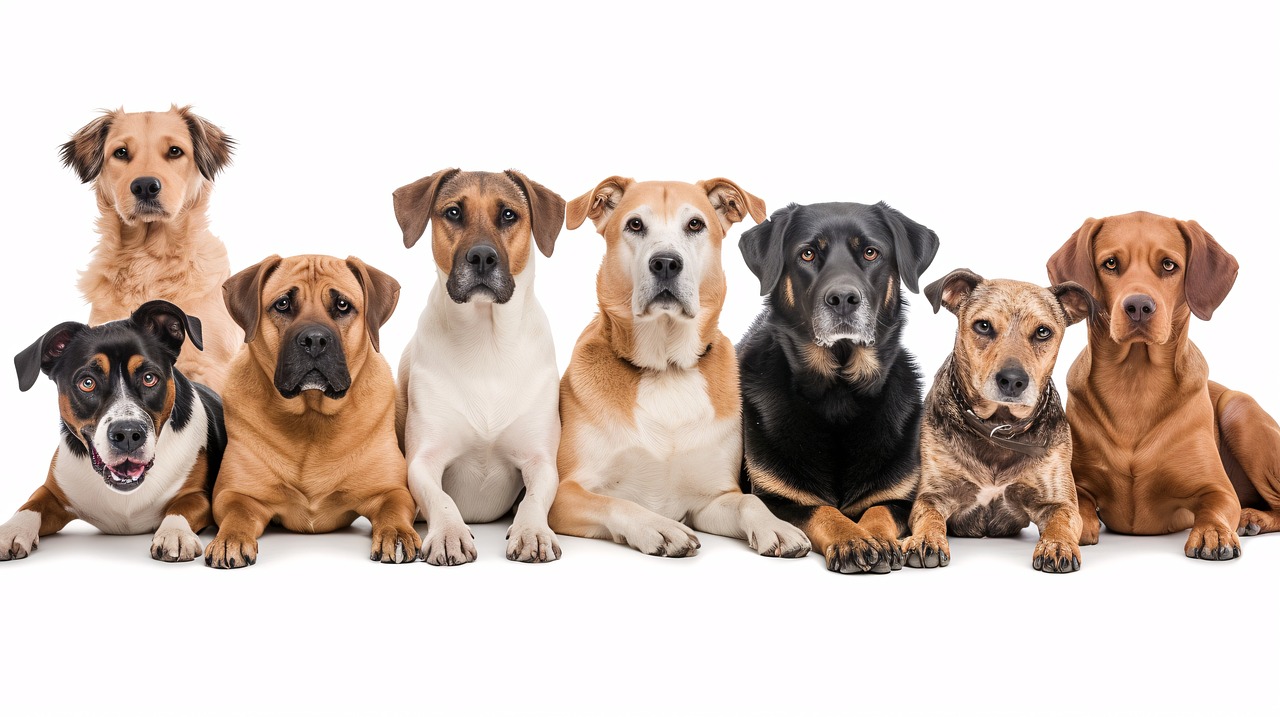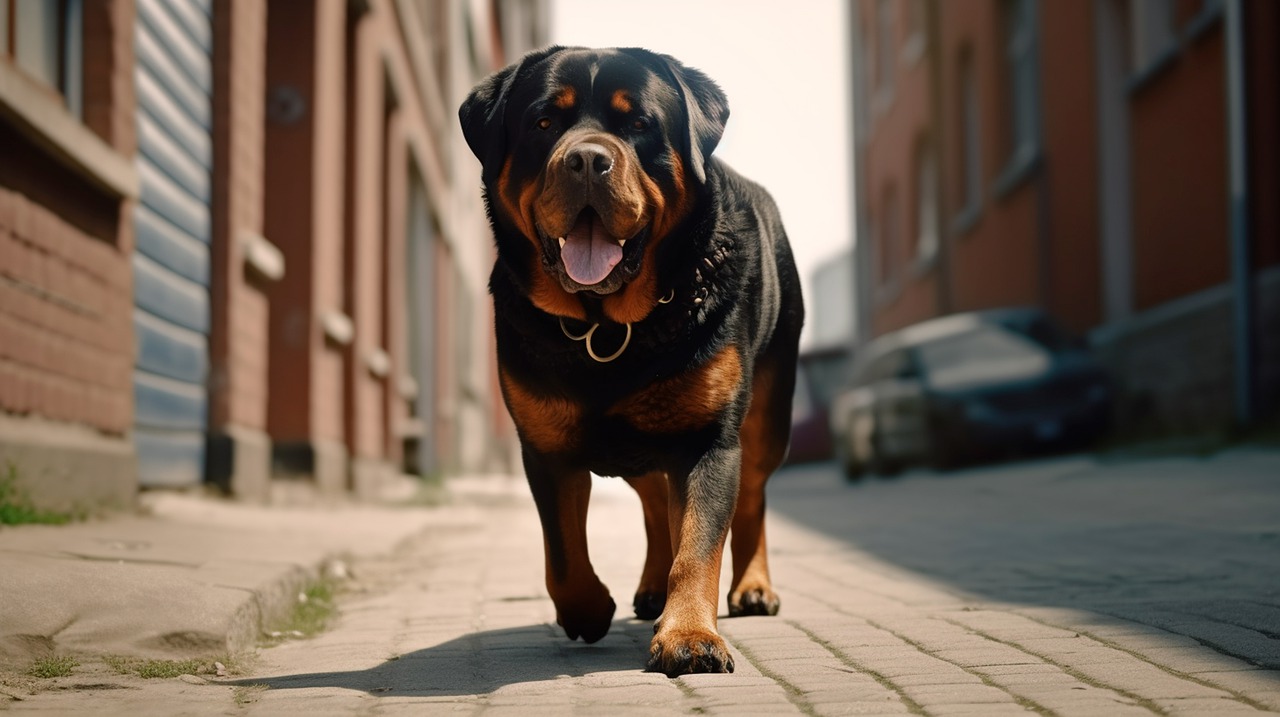You may have often encountered the unpleasant surprise of finding a soft pile on your kitchen table or carpet. Oh no! Your dog is experiencing diarrhoea. So in this article, we will explore the most common causes of diarrhoea in your dog and guide you about how to treat your dog’s diarrhoea at home.
Firstly, it’s essential to understand that anything disrupting your dog’s digestive system can lead to diarrhoea. Now let’s discuss some factors that can adversely affect your dog’s digestive system.
Most Common Causes of Diarrhoea in Dogs
- Intestinal Parasites
- Food Allergy
- Foreign Body Ingestion
- Medication and Diet Change
- Vaccines
- Anaesthesia
1. Intestinal Parasites
Among the leading causes of diarrhoea in dogs, intestinal parasites stand out as the most common cause. These parasites are specific types of worms that can transfer from one dog’s faeces to another and potentially infect your dog. However, these parasites are not visible to the naked eye in either the poop or within your dog. This is because their eggs are tiny and can only be observed under a microscope.
When your dog sniffs the poop of another dog on grass or in the dirt, the eggs adhere to its nose. As your dog licks its nose, these eggs find their way into its mouth and ultimately reach the stomach. Consequently, intestinal parasites contribute significantly to the occurrence of diarrhoea in dogs worldwide.
2. Food Allergy
Sometimes, your dog may consume something from outside that is not a regular part of its diet, such as pizza crust, potato chips, chicken, lamb chops, or chicken wing bones. If these items are not typically part of your dog’s regular diet, there’s a good chance they may lead to diarrhoea. Many dogs experience diarrhoea due to allergies to certain foods. If your dog is excessively pretentious, it could also be an indication of a sensitive stomach, possibly caused by ingesting something that triggers a food allergy. Consistency in your dog’s diet is crucial for those with sensitive stomachs.
3. Foreign Body Ingestion
Another potential cause of diarrhoea in your dog is foreign body ingestion. Your dog may have ingested items like toys, tags, rocks, or anything it shouldn’t have swallowed. In such cases, your dog may develop diarrhoea. Pica is a condition where an animal wants to eat or attempts to eat things that cannot be digested. In this condition, your dog might face diarrhoea as it struggles to digest these non-food items. Veterinarians generally treat this type of diarrhoea in your dog by surgical methods to remove the ingested item.
4. Medication and Diet Change
Certainly, if your dog takes any medication, it’s quite possible that the medication could be causing diarrhoea. Some medications have the side effect of inducing diarrhoea. It is important to note that this type of diarrhoea might not always be watery but can often present as loose stools due to the medication. Similarly, if you’ve recently changed your dog’s food, opening a new bag might have led to loose stools. It’s advisable to share this information with your vet, and if you are hesitant to switch brands, simply changing the food bag could make a difference.
5. Vaccines
Certainly, diarrhoea can be a potential outcome of vaccination for your dog. It is important to note that vaccine-induced diarrhoea typically includes an episode of mild upset stomach. If your dog is experiencing prolonged or severe diarrhoea after vaccination, it’s important to inform your veterinarian. This allows them to initiate treatment for the dog’s diarrhoea and assess whether re-vaccination is advisable.
6. Anaesthesia
It is important to mention anaesthesia as it can be another factor contributing to diarrhoea in dogs. Anaesthesia can lead to diarrhoea in dogs. If your vet has administered a dose of anaesthesia for any reason, and afterwards your dog seems disoriented, it could potentially result in soft stools or diarrhoea. In such a situation, it is advisable to alert your vet so they can address the issue before your dog experiences excessive fluid loss. Always ensure that your dog has been checked by the vet before undergoing any procedures involving anaesthesia.
How to Treat Diarrhoea in Dog
Treating diarrhoea in dogs requires understanding the cause before administering treatment. Identifying the cause is important for effective treatment. If your dog is experiencing severe or watery diarrhoea with a risk of dehydration, it’s essential to promptly consult your veterinarian.
For mild cases where your dog is otherwise active and normal but has loose stools, you can consider using some below-mentioned remedies at home to help alleviate the diarrhoea.
Home Remedy for Diarrhoea in Dogs
You can apply the following remedies at home to help control your dog’s diarrhoea. However, remember that if home remedies are not effective, and your dog’s diarrhoea persists, it’s essential to contact a veterinarian without delay.
Three-Day Diet Program:
Day 1:
Water Only: For the first 24 hours, withhold your dog’s regular food and provide access to clean water at all times.
Day 2:
Blended Diet: Introduce a bland diet by blending plain cooked white rice. This is often a suitable homemade diet for dogs with diarrhoea. Offer this blended diet in portions similar to your dog’s regular meals.
Day 3:
Mixed Diet: On the third day, gradually transition your dog back to its regular diet by offering half half-blended diet and a half-regular diet for each meal.
If the diarrhoea in your dogs persists or worsens, consult your veterinarian promptly for proper guidance and treatment.
Probiotics
You can also use probiotics as a home remedy to treat the diarrhoea in your dog. These supplements restore the natural bacteria in your dog’s intestines and help normalize its immune system. One highly effective probiotic supplement is Lactobacillus acidophilus. Capsules of this supplement are available in the market, and you can use 1/4 or quarter of a capsule for every 10 pounds of your dog’s body weight. Administer probiotics twice a day, and they can be utilized in various cases of dog diarrhoea. Ensure to purchase this medication from a reputable source.
Preventing diarrhoea in dogs
Preventive measures are the best way to protect your dog from this annoying condition. Here are some practical and simple tips to prevent diarrhoea.
- Deworming your dogs every month is very important to keep them safe from heartworms and other parasites.
- Keep your dog’s or puppy’s vaccination status up to date. Which can protect your pet from different viral or bacterial infections. Remember following the puppy’s first-year vaccination schedule is the only way to protect him from any fatal disease.
- Keep your pet child away from any public places until the completion of the vaccination series.
- Keep your dog away from any potential damage from bones, table scraps or household objects, which can pose a risk of foreign body ingestion.
- Always change the diet plan gradually, over the days or even weeks. Slowly increase the amount of new food day by day. This practice will give the digestive system time to adjust accordingly.
- Consult your veterinarian for advice about dietary plans or dietary changes when necessary.
Frequently Asked Questions
Dog diarrhoea can be caused by various factors such as dietary indiscretion (eating something unusual or inappropriate), sudden diet changes, infections (bacterial, viral, or parasitic), stress, allergies, food intolerance, medications, and medical conditions like inflammatory bowel disease.
You should be concerned if your dog’s diarrhoea is severe, persistent, or accompanied by other signs like vomiting, lethargy, dehydration, blood in stool, or changes in behaviour. If your dog is a puppy, or senior, or has existing health issues, it’s important to consult a veterinarian as soon as possible.
For mild cases of diarrhoea, you can try fasting your dog for 12-24 hours to give their digestive system a rest. After fasting, gradually reintroduce a bland diet such as boiled rice and boiled lean chicken. Make sure your dog stays hydrated by providing clean water. If the diarrhoea persists for more than a day or if it worsens, consult a vet.
You should seek veterinary care if your dog’s diarrhoea is severe, contains blood or mucus, is accompanied by other signs and symptoms, lasts for more than 24 hours, or if your dog is very young, very old, or has pre-existing health conditions. A vet can diagnose the cause and treat the diarrhoea of your dog accordingly.



